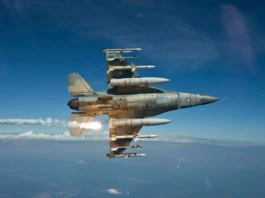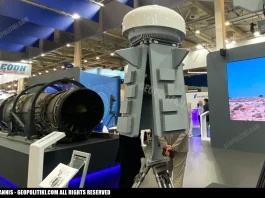Saddam Haftar, son of Libyan warlord of Eastern Libya and General Khalifa Haftar, appears to be carving out his own diplomatic path as his father’s successor, often through unexpected visits and meetings.
Last week, he was in Ankara, where he was received with military honors in his role as Chief of General Staff of Eastern Libya, and met with Turkish Army Commander, Lieutenant General Selçuk Bayraktaroğlu. The visit took place at the Turkish Army General Staff headquarters in Çankaya, Ankara.
The only official announcement came through Facebook, with no details on the purpose of the meeting. However, the background tells a different story.
Saddam Haftar had previously visited Turkey in October 2024 during the SAHA EXPO in Istanbul, reportedly holding talks with Turkish Defense Minister Yaşar Güler. According to THS Haber, during his latest visit on April 4, he signed a preliminary agreement that opens the door for the purchase of Turkish weapons and training for his father’s forces. The deal allegedly includes Bayraktar TB2 UAVs, though this remains unconfirmed.
Turkish airlines also resumed direct flights to Eastern Libya last year, another development that has raised eyebrows. But here’s the problem: no independent verification exists. Libyan sources declined to comment or lacked information, while Libyan media also seemed unaware of the visit’s true purpose.
Let’s not forget that Khalifa Haftar had previously sought strong diplomatic and military backing from Greece—support that never materialized, especially after the tragic car accident involving the Greek mission in Derna.
Despite Greece achieving diplomatic wins with the Tripoli government, which—without official recognition—respected Greece’s EEZ in the Eastern Mediterranean during hydrocarbon exploration planning, Saddam Haftar seems to be turning toward Turkey.
On April 7, Greek Deputy Foreign Minister for Economic Diplomacy Tasos Chatzivasileiou met with Dr. Ali Mahmoud Hassan Mohammed, President of Libya’s Investment Authority, in Athens.
Libya’s internal conflict is no longer limited to its borders. If Saddam and other Benghazi-based Libyan officials are indeed moving the LNA closer to Turkey—a country that until recently supported their rivals in Tripoli—this could mark a major regional shift.
For now, things remain fluid. The Haftar family appears to be shopping for external allies, from Turkey to Israel, with no firm commitments. These may simply be diplomatic moves with little real impact.
One thing is certain: something is brewing in Libya — and Greece is closely monitoring how the situation develops.




